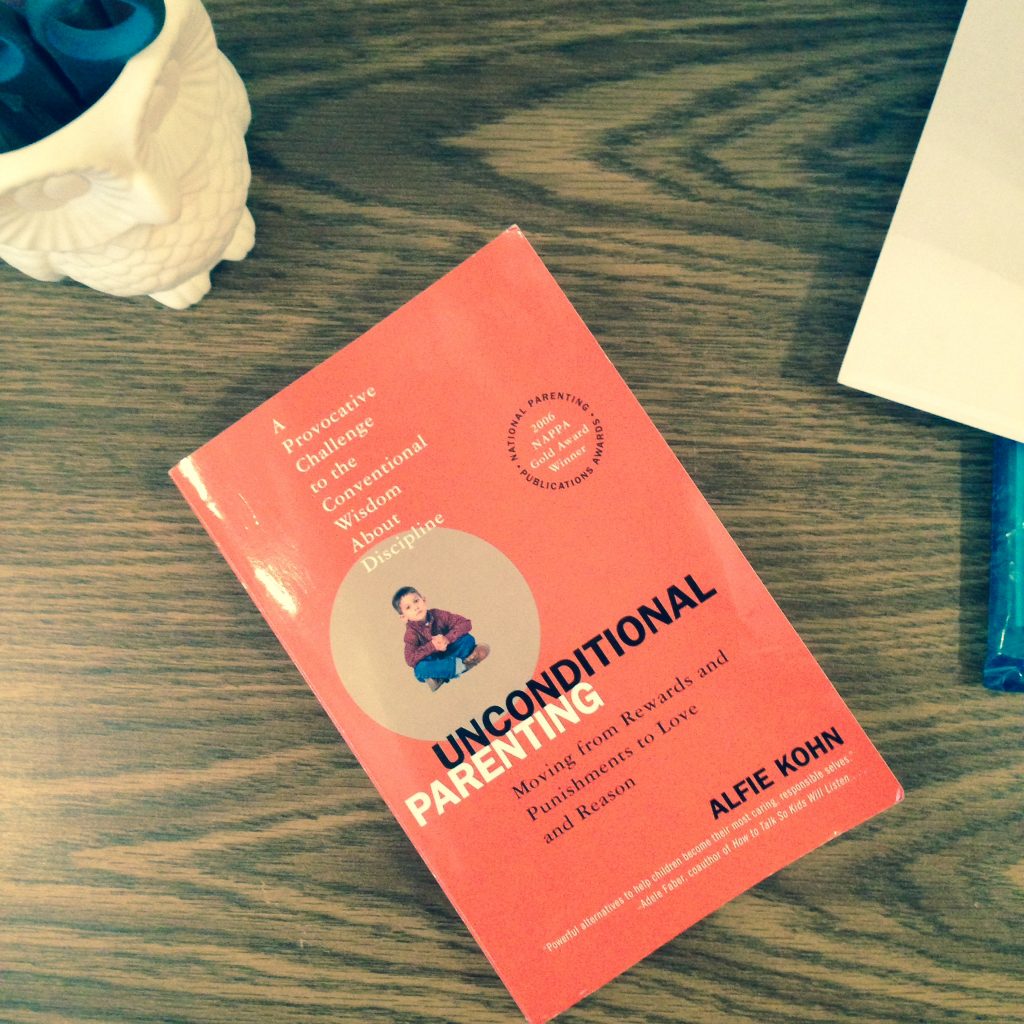Book review: “Unconditional Parenting” by Alfie Kohn
Book Review: “Unconditional Parenting” by Alfie KohnI often recommended to parents an article by Alfie Kohn called “5 Reasons to Stop Saying Good Boy/Good Girl“. And I’ve been told many times that parents have found his book “Unconditional Parenting” the most useful parenting book they had read. So I was excited to hear him speak last November when he visited Amsterdam and I signed up for both talks – one about testing in schools and the other for parents. I bought his book “Unconditional Parenting” on the night and finally had time to read it. So it is about time I pass on what I have learned from Alfie Kohn. 1. Working with (instead of doing to) The biggest message I have taken away from Alfie Kohn’s book is his emphasis to shift towards “working with” our kids as opposed to “doing to”. “Doing to” strategies are things like threatening, bribing and rewarding our kids as ways to control our children. Instead some “working with” strategies he suggests are:
2. Use of praise, rewards and punishment Alfie Kohn believes that praise, rewards and punishments are all ways of controlling our children. These provide extrinsic motivation to behave in the way we want. But he says this is the wrong type of motivation – better for it to come from the child themselves. For example, instead of putting a child into time out if he has hit another child, you can get the child to work out what to do to make amends. “I think she feels so bad she is crying. What can you do to make her feel better?” By ending with a question, you give your child a chance to come up with something (even a pre-verbal child!). 3. Use of testing in schools Alfie Kohn is also very critical of the schools in the US (and many other countries) where there is a lot of focus on test scores. He would like to see school implement interactive, interdisciplinary, and question-based learning to get a deep understanding as opposed to just learning facts. Sounds like a Montessori education would meet many of these requirements. Hopefully I’ve inspired you to hear more from Alfie Kohn. You can find some of his talks on Youtube. Or you can read his book “Unconditional Parenting” and let us know what you think! If you have already read the book, join the discussion over on our Facebook page. |

Simone Davies has more than 20 years’ experience as an AMI Montessori educator. Simone is the author of “The Montessori Toddler” and co-author of “The Montessori Baby” and “The Montessori Child” books, comprehensive guides to raising children in a Montessori way. She currently runs parent-child Montessori classes in Amsterdam at her school Jacaranda Tree Montessori. She also has a popular blog, instagram and podcast “The Montessori Notebook” and is mother to two young adults.
